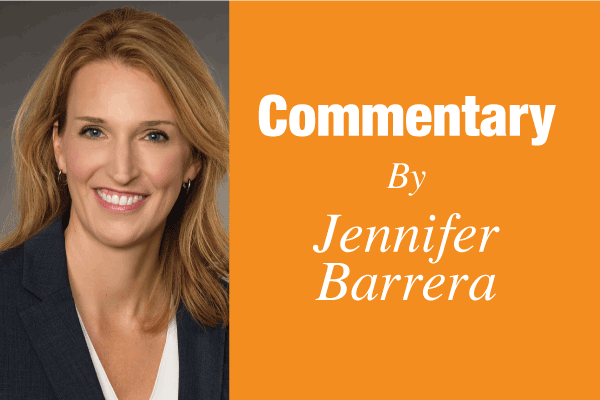
The California Chamber of Commerce is urging all Californians to vote NO on Proposition 30. California’s ability to compete depends on attracting and retaining entrepreneurs and investors. The reality is that the new taxes proposed in Proposition 30 will drive investment out of the state.
To be clear, a “No” vote on Proposition 30 is a vote against new taxes, not a vote against the environment.
Proposition 30 proposes a tax hike on higher-income taxpayers by 1.75 percentage points, which would raise the top income tax rate to a whopping 15.05%—far higher than any other state income tax in the nation.
Primarily sponsored by one company and environmental advocates, Prop. 30 is estimated to raise taxes by $60 billion to $80 billion over the course of 20 years for projects and programs that are already top spending priorities for the Governor and Legislature, including subsidizing electric vehicle (EV) purchases, installation of EV charging stations, and increased funding for wildfire suppression and prevention.
Reasons to Reject
Voters should reject this initiative proposal for three simple reasons:
• First, the tax increase proposed in Prop. 30 will drive high wealth earners out of the state. Raising taxes on the most productive sectors of our economy is a self-inflicted wound. Upper-income taxpayers are the investors, entrepreneurs and small- and medium-business owners who create innovation, sustain industries, and drive job creation. Many of these individuals have options as to where and how they expand their firms and investments or create new opportunities. If these taxpayers have a choice where to do business, a 15%-plus tax bite will dim California’s prospects.
What’s more, increasing the state’s income tax rate will add even more volatility to the state budget—exacerbating California’s notorious boom-and-bust budget cycles. The income tax accounts for more than two-thirds of the state’s general revenue—much of that from capital gains income. But when the business cycle turns and income from stock market, real estate or other investment transactions ebb, state revenues are disproportionately vulnerable—especially when long-term commitments have been made.
Increasing taxes for a new spending program will also put other state programs at risk should the state’s Gann spending limit come into full force. The constitutional provision caps spending based on inflation and population. Should it take full effect, as the Legislative Analyst has warned, new spending from Prop. 30 would crowd out existing spending for health care, public safety and higher education.
• Second, the measure is unnecessary. The Governor and Legislature have already made historic funding commitments to electric vehicle adoption and support. The current state budget devotes $10 billion over several years to subsidize EV purchases by moderate-income buyers and to create a statewide network of charging stations. This commitment includes hundreds of millions in federal funds for these same purposes from the bipartisan infrastructure package.
The Legislature also has devoted record funding and unprecedented staffing to CalFire for wildfire suppression and prevention. There is no known case of the Governor or Legislature rejecting any operational, programmatic or emergency funding request by state firefighters in recent years.
• Finally, this initiative does not address how to reinforce, expand, or support our already-fragile electricity grid that could be further strained by this proposal. If the initiative actually does incentivize the immediate purchase of electric vehicles, California’s razor’s-edge electricity reliability challenge would be placed under even greater stress than it is now. Increasing vehicle-caused electrical load even faster than the Legislature and Governor have already mandated could jeopardize our energy reliability.
Widespread Opposition
Proposition 30 has drawn widespread and diverse opposition, including Governor Newsom, business organizations, labor unions, civil rights leaders and almost every newspaper editorial board.
The CalChamber Board of Directors voted earlier this year to oppose Proposition 30, and CalChamber staff is working closely with the campaign to defeat the measure. Proposition 30 is a bad idea that will hurt California’s competitiveness.
Jennifer Barrera is president and CEO of the California Chamber of Commerce.

